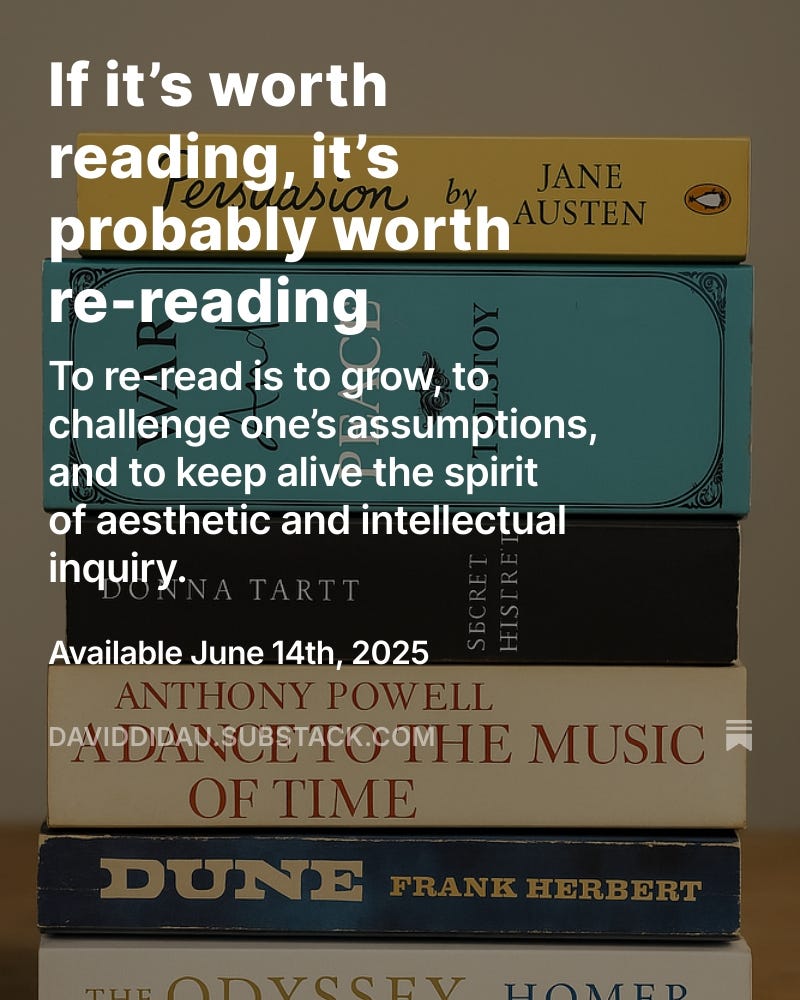It's Your Time You're Wasting: We need to talk about talk
On oracy, equity, and educational rhetoric
This week, Martin and David chew over what oracy means and what it should look like in schools.
In recent years, oracy has elbowed its way onto the educational agenda. Once the scruffy afterthought to literacy and numeracy, it’s now being paraded as education’s missing cornerstone, the supposed key to both social justice and employability. The Labour Party has seized on it, with Keir Starmer and Bridget Phillipson pitching oracy as the magic bullet to close attainment gaps, democratise opportunity, and cultivate the next generation of well-spoken citizens. And yet, beneath the warm glow of cross-party consensus, an awkward question lurks: what exactly is oracy? And does the evidence support the evangelical fervour with which it’s now being sold?
The oracy uprising
In 2021, The APPG’s Speak for Change report identified widespread inconsistency in oracy provision across schools in England, describing a ‘postcode lottery’ where pupils’ access to high-quality speaking and listening education depends heavily on individual schools and teachers. The report highlighted significant gaps in teacher training, both at initial and in-service stages, leaving many staff underprepared to teach oracy explicitly. It called for a national oracy strategy, including clear curriculum expectations, professional development pathways, and robust national standards to ensure all children have equitable access to structured oracy development throughout their schooling.
Last year, the Oracy Education Commission’s 2024 report, We Need to Talk, called for oracy to be treated as a foundational skill, one no less important than reading, writing, or arithmetic. Their ambition includes a national entitlement, better teacher training, and the embedding of oracy across the curriculum. Similarly, Voice 21 have made impressive strides: 1,100 schools, Oracy Centres of Excellence, whole-school training programmes. There’s a sense of momentum, though not everyone is convinced that this headlong enthusiasm is matched by conceptual clarity or a robust evidence base. As ever in education, the danger is that we rush to implement before we’ve agreed exactly what it is we’re implementing.
The National Literacy Trust adds moral force to this campaign, reporting that a third of children start school without the expected level of speaking and listening skills. Early language gaps predict later achievement gaps, so the argument goes. Oracy, we’re told, isn’t just about eloquence but equity.
Meanwhile, small-scale pilot studies from the EEF and Nottingham Trent suggest structured oracy programmes can boost confidence and attainment, especially for disadvantaged students. Their report offers cautious optimism for structured oracy teaching, reporting improvements in pupils’ confidence, participation, and classroom talk, particularly for younger and disadvantaged children. However, the study also highlights familiar problems: inconsistent definitions of oracy, difficulties in reliable assessment, and wide variation in how schools implemented the programmes. Teachers valued professional development but needed significant support to embed oracy effectively, raising questions about the feasibility of scaling provision system-wide. Without careful design, they warn, benefits may accrue unevenly.
So far, so persuasive. But as always, the devil is in the detail
Seductive rhetoric vs sound theory
Daisy Christodoulou’s recent piece What is Good Oracy? offers a bracing counterweight to the prevailing orthodoxy. Her critique is simple: much of what passes for oracy prioritises surface-level fluency over depth and accuracy. Confidence is mistaken for understanding. Speaking well is not the same as thinking well.
Assessment adds further complication. Assessing Oracy: The Next Phase raises serious doubts about the reliability of evaluating talk. How do we measure thoughtfulness, responsiveness, or rhetorical sophistication in a fair and consistent way? Subjectivity looms large.
Ian Cushing offers a critique which takes issue with the notion that oracy offers a straightforward route to social justice, exposing the uncomfortable lineage behind much of the current agenda. He traces its roots to Andrew Wilson’s 1960s deficit model, which cast working-class and racialised speech as linguistically impoverished. Despite its progressive packaging, Cushing argues, modern oracy policy still rests on the assumption that marginalised pupils must have their speech ‘corrected’ to achieve upward mobility, effectively shifting responsibility for structural inequalities onto individuals. Non-standard English is pathologised, slang policed, and classed hierarchies quietly reinforced. Yet there’s a certain irony here: Cushing himself articulates these arguments fluently in the rarefied language of the academy, drawing on rhetorical resources that are inaccessible to many of those his critique seeks to defend. In railing against linguistic gatekeeping, he demonstrates precisely how powerful such gatekeeping can be.
Alex Quigley offers a different but complementary critique, questioning whether oracy has been clearly enough defined to warrant its growing prominence. As he points out, the term bundles together a sprawling mix of skills: dialogue, vocabulary, listening, debate, presentation, critical thinking. Without sharper conceptual boundaries, oracy risks becoming a catch-all that promises everything and delivers little. Quigley is particularly sceptical about assessment, warning that evaluating spoken language often rewards superficial confidence over genuine understanding and leaves too much room for subjective bias. For all the warm rhetoric, he suggests, oracy may simply be repackaging familiar aspects of good teaching under a new and fuzzier label.
Talk is never neutral
It’s tempting to view oracy as an unqualified good. After all, who could object to helping children express themselves more clearly? But this assumes oracy is an innocent project, that speech, in classrooms, is free from power. It isn’t.
Take assessment. Oracy is difficult to assess with any objectivity, yet some propose standardised frameworks. Who decides what counts as ‘good’ talk? And who benefits?
Or consider implementation. Clare Seeley’s blog Oracies Not Oracy points out how easily initiatives degenerate into rote speaking routines that suppress genuine dialogue. If ‘talk partners’ just mean parroting back a sentence stem, we’ve missed the point.
Then there’s the equity question. Debating societies and confident public speaking are still more common in private schools. A Guardian report in 2024 noted that Eton encourages state schools to set up debating clubs. Well-meaning advice, perhaps, but what does it reveal about who oracy is for?
And let’s not ignore the political irony. Some of oracy’s loudest parliamentary champions have a remarkable knack for shouting down opponents while deriding “wokery” in schools. If oracy means “reasoned speech,” shouldn’t we expect more of it in public life?
Provocations to Keep Us Honest
Is oracy a Trojan horse for middle-class norms of ‘good speech’?
Does it reward extroversion over insight?
Are we dressing up behaviour management as cognitive development?
Should oracy even be assessed at all?
Can you “teach voice” in a system that rewards silence?
What happens when synthetic speech becomes ubiquitous?
And then there’s the looming question of artificial intelligence. What happens when AI-generated voices become indistinguishable from our own? What does authentic speech mean in a world of deepfakes and digital ventriloquism?
Conclusion
Oracy matters, but how it’s defined, taught, and assessed matters more. Unless we ask hard questions about what kinds of talk we value, whose voices we privilege, and what educational ends we serve, oracy risks becoming another well-meaning initiative stretched too thin and applied too quickly.
Talk, after all, is not cheap. It’s cultural capital, emotional labour, political performance. If we’re serious about teaching it, we need to be equally serious about interrogating it.
This week’s essay for paid subscribers is on the joy and importance of re-reading. I keep subscription as low as Substack allows: £3.50 per month or £30 per year.








One aspect of this issue to bear in mind is the connection between writing and speaking -- or "oracy," if you will. As Claire Sealy has written, "Talking floats on a sea of write." (See this post: https://primarytimery.com/2024/06/21/talking-floats-on-a-sea-of-write/). In other words, if you teach students to write in more complex ways, that carries over to enabling to think in more complex ways--and to speak in more complex ways as well.
Enabling students to speak in a more complex or more academic register shouldn't have to entail denigrating less formal ways of speaking. There's a richness to much idiomatic speech that should be appreciated and respected. But if we deny students the opportunity to become familiar with a more formal or more complex register, we inadvertently foreclose many other opportunities for them as well.
I mean, we could always try sophistry. 🤷♂️